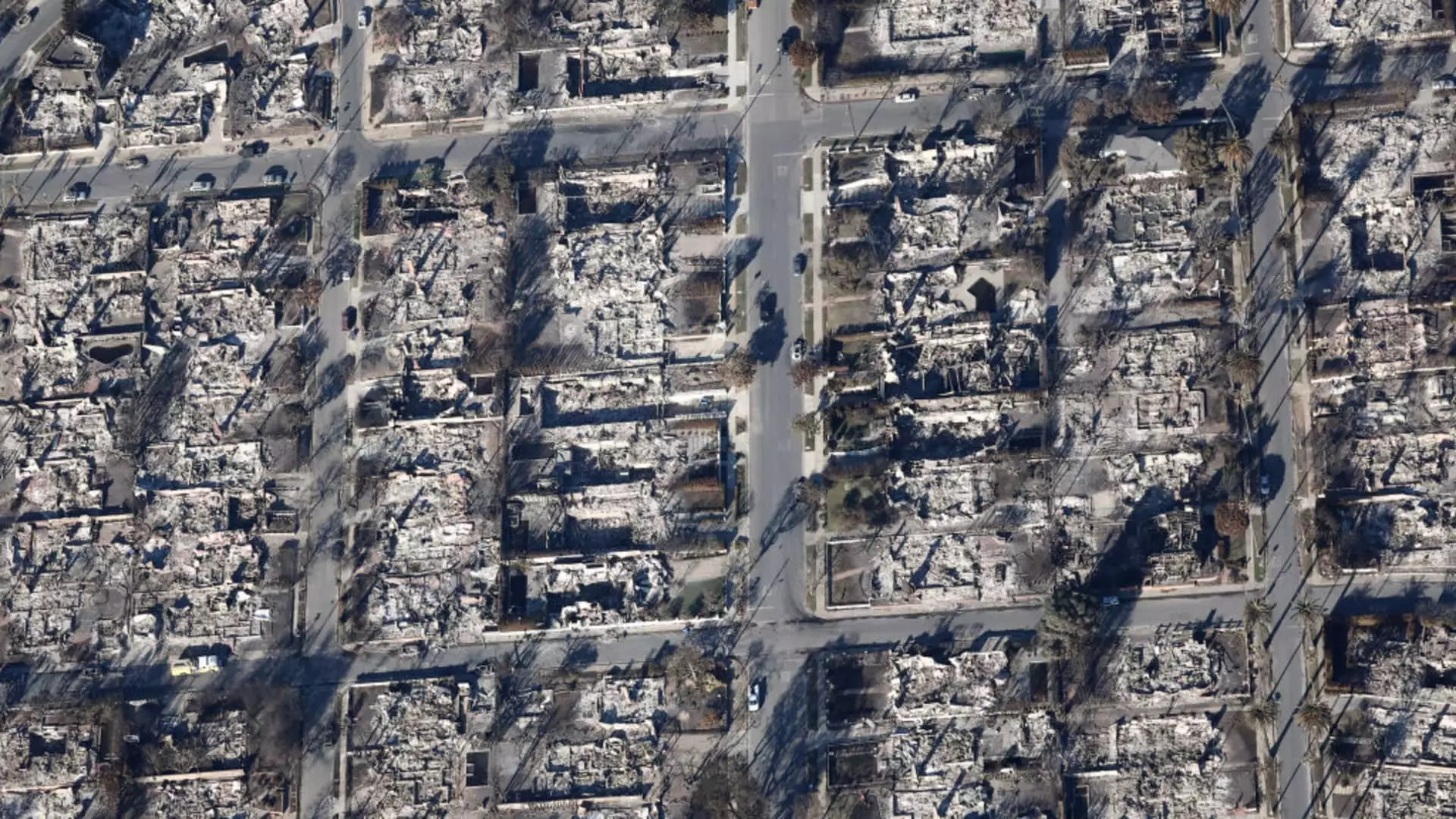The devastating wildfires that swept through the Los Angeles area last week have not only claimed homes but also ignited a significant crisis in the rental market. Many families are now faced with the daunting task of finding new places to live, confronting skyrocketing rental prices as they scramble to secure shelter in a city already grappling with a housing shortage. This precarious situation, magnified by the urgency of a natural disaster, exemplifies the crucial intersection of housing security and the realities of economic disparity.
Desperate Measures in a Time of Need
For families displaced by natural disasters, the need for immediate housing becomes urgent. Joe Thompson, a 44-year-old trader, and investor, epitomizes the plight faced by many. After wildfires ravaged parts of his Los Angeles neighborhood, Thompson and his partner found themselves in dire need of accommodation. They encountered a five-bedroom home listing for $28,000 a month—more than double what similar properties cost a year earlier. Faced with exorbitant upfront payment demands and stiff competition from other desperate renters, the couple found their options dwindling. “We’re not going to do that,” Thompson stated, indicating resignation rather than acceptance.
This instance is not just about the lemma of rising rents; it shines a light on the substantial inequality within the housing market. Individuals and families previously renting or living paycheck to paycheck find themselves priced out and vulnerable. Caught in a tender trap of demand exceeding supply, many are left with no choice but to accept untenable rental terms.
As demand for housing stretches far beyond the city’s capacity, property owners and managers have begun to exploit the crisis. Numerous reports indicate that rental prices are skyrocketing, in many cases exceeding the 10% increase cap outlined by California law during a state of emergency. A localized review of listings has unveiled shocking hikes—such as a four-bedroom dwelling in Topanga witnessing a staggering 24% increase in rent.
Local leaders have entered the conversation, condemning these practices. California Assemblymember Jacqui Irwin articulated the growing concern, referring to the price gouging in the wake of such tragedy as “absolutely unacceptable.” Despite these voices of reason, enforcement mechanisms remain murky, leaving many vulnerable families without recourse.
Displacement due to wildfires and the subsequent housing crisis reveals the broader issues of social inequity that persist within society. Working-class families, retirees, and even young couples who have recently purchased homes find their current living situations upended. Many disaster-stricken individuals are being forced to make critical decisions about their living arrangements, often resorting to temporary shelters, while others rely on the generosity of friends and extended family.
Brock Harris, a local real estate broker, illustrated the confusion faced by homeowners who previously never experienced market volatility, stating they’re suddenly confronted with a “crash course” on the housing shortage. “For many people, the search for housing that matches what they lost becomes increasingly impossible,” he lamented.
On another note, entities like Airbnb.org are stepping up to provide temporary housing solutions. This initiative showcases an emerging solidarity in the community, a silver lining amidst overwhelming despair.
A Mixed Response to the Crisis
Undoubtedly, the response to the post-wildfire housing crisis is nuanced. While tales of price gouging dominate headlines, there are also instances of compassion. Numerous landlords are maintaining their rental rates, choosing not to capitalize on the desperation of those impacted. Tannis Mann, a stringently discerning renter, expressed her strategy: she crossed off listings from her search if prices had significantly risen. Compassionate decisions like this reflect an understanding of the human toll that natural disasters impose.
Yet, for many families, the ongoing search is far from fruitful. The Polmateers, who narrowly escaped the flames with their three children and ten-week-old puppy, reported a notable increase in listings. Their efforts to secure a living space have them circling back to Airbnb for temporary relief, grateful yet anxious about their long-term future.
Confronting the Uncertain Future
The volatile rental market in Los Angeles, amplified by recent wildfires, serves as an urgent call to reevaluate how communities respond to housing crises. The intersection of human need and economic gain highlights a precarious balance, one that increasingly tilts in favor of landlords rather than those in need of housing.
As the Thompson family continues their search amid rising rents and increased competition, the broader implications of this situation loom large. With a collective sense of vulnerability hanging over families in the region, the ongoing crisis demands urgent attention, adaptive policies, and community-driven solidarity. In a world where disasters can instantaneously reshape lives, the commitment to equitable housing solutions remains more important than ever.

